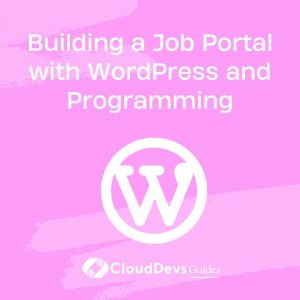Is WordPress Really Free?
Table of Contents
In the world of website creation, WordPress stands out as one of the most popular platforms. However, it’s important to understand that there are different versions of WordPress available, namely WordPress.org and WordPress.com. These versions have distinct features and requirements, which in turn affect the cost involved.
So, if you’re wondering whether WordPress is free, the answer depends on the platform you choose. In this article, we’ll delve into the details of WordPress and explore the differences between the two versions. Additionally, we’ll discuss the costs associated with running a WordPress site.
1. Understanding WordPress
First introduced in 2003, WordPress was initially developed as a platform for personal online publishing, primarily catering to bloggers. Over time, it has evolved into a versatile content management system (CMS) capable of powering a wide range of websites, from personal blogs to official government sites. WordPress boasts a vibrant community of over 400 contributors who actively participate in its development, contributing to its themes, plugins, and core improvements.
2. WordPress.com vs. WordPress.org
WordPress.com, owned by Automattic, is a hosting platform that offers a streamlined approach to website creation. It eliminates the need to purchase web hosting or a domain name separately. With WordPress.com, all you have to do is create an account, choose between the free and paid plans, and start customizing your website. On the other hand, WordPress.org is a self-hosted platform that requires you to handle web hosting and domain registration on your own. While WordPress.org receives support from the same company as WordPress.com, managing a self-hosted site entails more responsibility, including regular updates, theme customization, and plugin management.
3. Pricing
If you opt for WordPress.com, you can create a free account, which comes with a subdomain, a selection of themes, and 3 GB of storage for your website. To enhance the professionalism and uniqueness of your site, you can upgrade to one of the premium plans. These plans, billed on a monthly basis, include:
- Personal ($5 per month): Allows you to use a custom domain.
- Premium ($8 per month): Offers monetization tools.
- Business ($25 per month): Enables the installation of plugins.
- eCommerce ($45 per month): Provides advanced e-commerce features.
If you choose to build a self-hosted WordPress site using WordPress.org, you will need to invest in a domain name and web hosting services. The cost may vary depending on the service provider, but generally, a proper domain name can cost around $10 per year, while web hosting services can be as low as $1 per month. We will delve into this topic further later in the article.
4. Themes and Plugins
Themes and plugins play a crucial role in customizing your WordPress site and making it stand out. With WordPress.com, the ability to install plugins is limited to users with the Business plan. Similarly, if you want to modify themes, you must upgrade to a premium plan. In contrast, self-hosted WordPress sites offer full control, allowing you to install any number of plugins to enhance your website’s functionality. You can also customize the design and tweak themes as desired. However, extensive customization may require coding skills beyond using the WP Theme Editor.
5. Ownership
When it comes to ownership, WordPress.com retains the right to redistribute your content for specific purposes, as outlined in their Terms of Service. This means that if copyright protection is your primary concern, you should exercise caution when using this version. Furthermore, WordPress.com may terminate your access to your site under certain circumstances. In contrast, self-hosted WordPress sites grant you complete ownership and control over your content. As long as you comply with legal regulations, your website remains secure and cannot be replicated without your permission.
6. Customization and Flexibility
The level of customization and flexibility you desire for your website is an important factor to consider when choosing between WordPress.com and WordPress.org. WordPress.com offers a more streamlined and user-friendly experience, with limited customization options available on the free plan and more options as you upgrade to higher-priced plans. However, even with the paid plans, you may have some restrictions on design and functionality.
On the other hand, self-hosted WordPress sites powered by WordPress.org provide you with complete control over customization. You can choose from a vast library of free and premium themes, customize the design to your liking, and install any number of plugins to extend your site’s functionality. This level of flexibility allows you to create a unique and tailored website that aligns with your specific needs and branding.
7. Maintenance and Updates
Maintenance and updates are essential aspects of running a website. With WordPress.com, the platform takes care of most of the maintenance tasks, including updates to the core software, security measures, and backups. This relieves you of the technical responsibilities associated with managing a website, making it a suitable option for those who prefer a hands-off approach.
On the other hand, self-hosted WordPress sites require you to handle maintenance tasks yourself or rely on a web hosting provider that offers managed WordPress hosting services. This means you need to regularly update the WordPress core, themes, and plugins, implement security measures, and perform backups to ensure the smooth operation and security of your site. While this may require some technical knowledge or assistance, it also gives you greater control over the maintenance process and the ability to choose your preferred hosting provider.
8. Conclusion
In conclusion, the cost of using WordPress depends on the version you choose. WordPress.com offers a free plan with limited features, but to unlock more advanced options, you’ll need to upgrade to one of the paid plans. These plans provide additional benefits such as a custom domain, monetization tools, and plugin support, with prices ranging from $5 to $45 per month.
On the other hand, self-hosted WordPress sites powered by WordPress.org require you to invest in a domain name and web hosting services. While the initial costs may be low, you’ll have more control and customization options, allowing you to create a unique website tailored to your needs. However, managing a self-hosted site involves more technical responsibility, including maintenance tasks and updates.
Ultimately, the choice between WordPress.com and WordPress.org depends on your specific requirements, budget, and level of control you desire. Consider your goals, budget, technical expertise, and the desired level of customization when deciding which version of WordPress is the best fit for your website.


